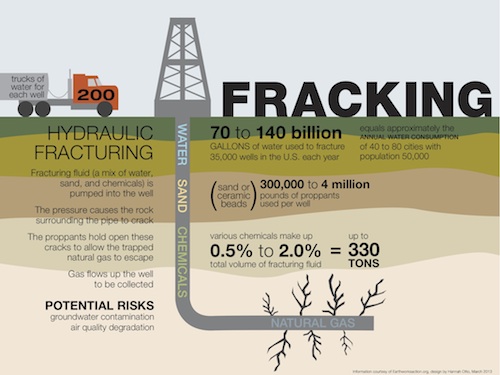North Carolina lawmakers have softened a controversial bill that would have made it a felony to disclose the chemicals used in fracking. Under the version of the law that passed the state legislature on Thursday, the offense has been knocked down to a misdemeanor. But legal experts say the language may still allow companies to press criminal charges against individuals who disclose what they learn about fracking chemicals—including doctors or fire chiefs.
Needless to say, some North Carolina communities are upset about this, and others are speculating as to the real reasons for the gag order. To reiterate, though: it could theoretically be a misdemeanor for your doctor to tell you exactly what made you sick, in the effort of protecting trade secrets of the oil/gas industry. That seems a bit of a reach, no? Or maybe this is all because of laziness?
The composition of petroleum distillates is complex, since they contain hundreds of different chemicals. Furthermore, the composition of the distillates continually changes based on the type of oil being refined as well as on changes in the operating conditions of the refinery. Therefore, if the drilling companies had to disclose the chemicals used in each of their thousands of fracking wells, it would require a lengthy and detailed laboratory analysis accompanied by a substantial amount of paperwork. They could do this work – they just don’t want to.
Somewhat unsurprisingly, the lead author of the North Carolina bill has pretty deep ties to the oil/gas industry. His name is Robert (Bob) Rucho, and some of his leading contributors are Duke Energy and Piedmont Natural Gas. It’s sometimes sad how these stories are always about follow the money.
You can sign a petition to against this deal here:
Sign the petition: Stop North Carolina’s sweetheart deal to the fracking industry http://t.co/7EF8NgoF2z
— Muzammil Syed (@mhsyed) June 3, 2014
It’s a fact that people need energy, yes — and it’s a fact that some of the emergent technologies in that world aren’t to scale yet — but placing a semi-gag order on doctors and first responders to protect the proprietary nature of fracking seems a bit ludicrous overall.
